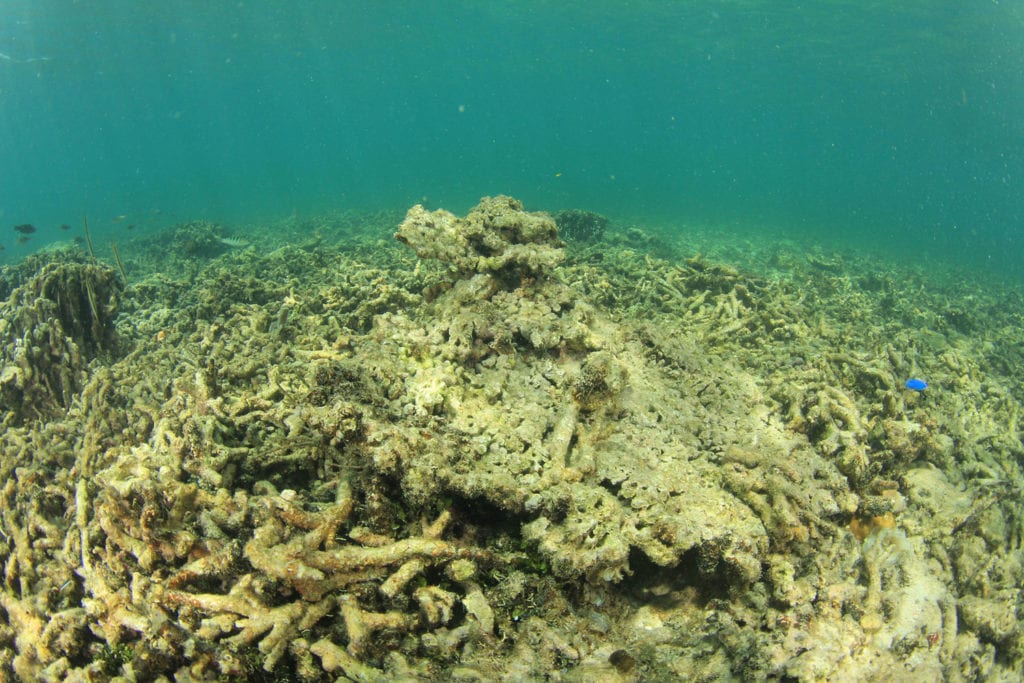While you are swimming or snorkeling on your vacations, you might inadvertently be harming the very attractions that you have gone there to see. By slathering on the sunscreen and hitting the water, you could be doing damage to coral reefs and other marine organisms. Reef safe sunscreen is an essential if you plan on wearing sun protection over your skin while you are around the ocean or the sea.
It might surprise you to learn that some sunscreen is harmful to the environment and there are certain things to look out for in the ingredients list of the brands you are considering. Before anything though, it is worthwhile to ask whether you really need to wear sunscreen in the first place. It’s always important to protect your skin from harmful rays but the first line of defense against the sun should always be hats and clothing. By covering up, avoiding the hottest part of the day, and staying in the shade when possible, you can significantly reduce the harmful sun protection products that get used. Bear in mind that even the most eco-friendly of sunscreen products usually come in plastic packaging and reducing plastic use is also important for the long-term health of our oceans.
Read: 5 Ways to Eliminate Single-Use Plastic When You Travel
Why is Some Sunscreen a Danger to Coral?
The nation of Palau, in the Pacific, signed a law against sunscreen containing 10 banned ingredients in 2018, and the law comes into force next year. In Hawaii, a new law goes into effect on January 1st 2021. This law bans the sale of sunscreen containing two chemicals – oxybenzone and octinoxate. This law is being brought into force because these two substances have been shown to contribute to coral bleaching. The chemicals have the same effect on coral as a rise in sea temperature – and it takes just a tiny concentration of these substances in seawater to do this harm. An estimated 14,000 tons of sunscreen are believed to enter seawater annually, and just a single drop of oxybenzone in more than 4 million gallons of water is enough to endanger organisms – not just corals but also algae, sea urchins, fish and marine mammals.

Oxybenzone and octinoxate are just two of the sunscreen ingredients that can pose a risk to the marine environment. Sunscreens fall into two major categories – chemical sunscreens, and mineral sunscreens. Chemical sunscreens use synthetic compounds, which absorb UV light before it reaches the skin. Mineral sunscreens use synthetic compounds which act as a shield, blocking the sun’s rays. Both types can cause problems as they wash off in the water.
Can We Rely on ‘Reef Safe’ Labels?

With growing awareness of the harm that sunscreens can do to the environment, ‘reef safe’ labels are proliferating. But not all companies are as scrupulous as others, and not all products that are labeled as ‘reef safe’ are truly free from harm. As with other ‘eco’ or ‘green’ labels, some products are better than others. While watching for ‘reef safe’ labeling is a place to start, the best way to safeguard against environmental harm is to make sure that you are fully aware and informed, and read the ingredients lists to determine the true impact of any product.
No-Nos For Reef Safe Sunscreen
So, what should you look out for on those ingredients lists? Which ingredients should be avoided? Here are some no-nos to look out for:
Oxybenzone & Octinoxate (& other UV Filters)
While the exact effects and concentrations of these chemicals in oceans are disputed by environmental experts, there are concerns, as mentioned above, that even small concentrations of these substances can contribute to coral bleaching. Oxybenzone is also mired in controversy regarding its possible hormonal and photoallergenic effects, which has led a number of countries to regulate its use. Octinoxate is also believed to have harmful ecological impact. What is more, a study carried out in 2017 suggested that this substance may damage human cell DNA.
Chemical sunscreen ingredients (UV filters)
Chemical sunscreen ingredients (UV filters) currently believed to have adverse effects include:
- Benzophenone-2
- Oxybenzone (Benzophenone-3)
- 3-benzylidene camphor
- 4-methylbenzylidene camphor
- 2-ethyl-hexyl-4-trimethoxycinnamate (Octinoxate, Uvinul MC80)
- Glyceril octanoate dimethoxylcinnamate
- DEA methoxycinnamate
- Ethyl-4-aminobenzoate
- Gyceril PABA
- Camphor benzalkonium methosulfate
- Cinoxate, amiloxate and Bis-ethylexyoxyphenol methoxyphenyl triazine (may also be of concern in the marine environment and needs more testing)
- Titanium Dioxide – As a sunscreen titanium dioxide is used as ultrafine TiO2. It is notable in that combined with ultrafine zinc oxide, it is considered to be an effective sunscreen that is less harmful to coral reefs than sunscreens that include chemicals such as oxybenzone and octinoxate. Unfortunately, however, these tiny nano particles have low to no solubility, and will remain in the environment for a long time to come without biodegrading. These tiny particles are also small enough to be absorbed by coral reefs, and a study suggested that exposing certain coral to TiO2 can also cause massive biological stress. More study is required to determine the effect of this substance on coral reefs in general. However, for now, this may be another ingredient to avoid.
- Petrolatum (Mineral Oil)
- Sunscreens that contain mineral oil (petrolatum) are also a concern. This substance takes years to biodegrade and the substance is believed to be harmful or fatal to aquatic life.
Preservatives are also bad for ocean health
In addition to the above, other substances contained in many sunscreens that may pose a risk to the aquatic environment include preservatives that are used to stabilize the sunscreen and allow it to sit on the shelves for longer. Commonly used parabens methyl paraben and butyl paraben are fungicides and anti-bacterial agents that make a product last longer. They may also be toxic to coral reefs and marine environments. Phenoxyethanol, another preservative, was originally used as a mass fish anesthetic.
Preservatives that are believed to pose a risk to the marine environment are:
- Methylparaben
- Propylparaben
- Butylparaben
- Ethylparaben
- Isobutylparaben
- Sodium methylparaben
- Sodium propylparaben
- Thimersal
- Triclosan
- Triclocarban
- Phenoxyethanol
- Chloroxylenol
- Potassium sorbate
- Glutaral
- Formalin
- Climbazole
- Methyldibromo glutaronitrile
Again, more study is required to work out exactly what impact all these substances have in our seas and oceans.
‘Non Nano’ Ingredients for Reef Safe Sunscreen
Mineral products that use zinc oxide and other ingredients may be the most reef safe sunscreens to go for. But they must be ‘non nano’ to be considered reef safe. If the particle size is below 100 nanometers, they can be ingested by corals and may pose a risk. It is also important not to choose aerosols, as the chemical ingredients are microscopic and dispersed airborne into the surrounding environment.
With all the ingredients that could pose a risk to coral reefs and other marine organisms, you may find it a challenge to find a sunscreen that truly does no harm. It is important to protect yourself from harmful rays – but staying covered up, or out of the sun really is the best first course of action.







